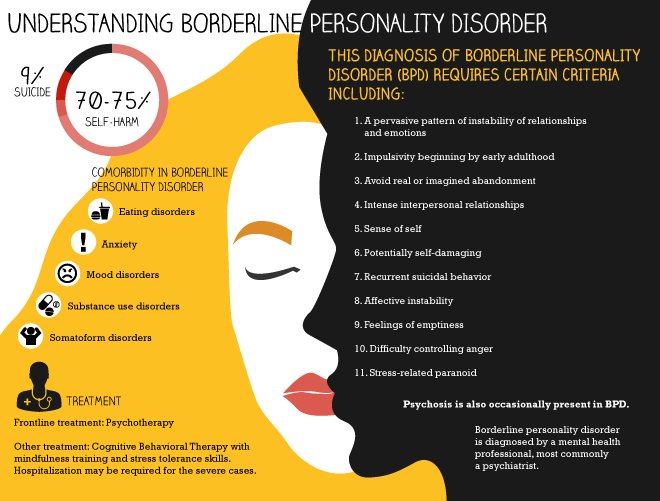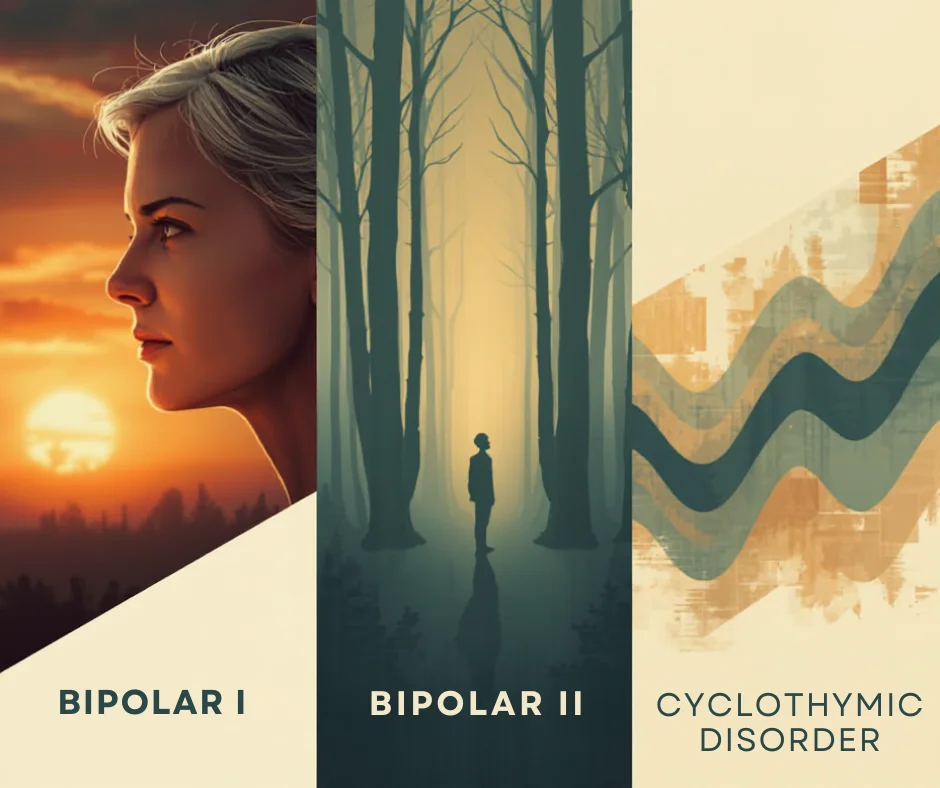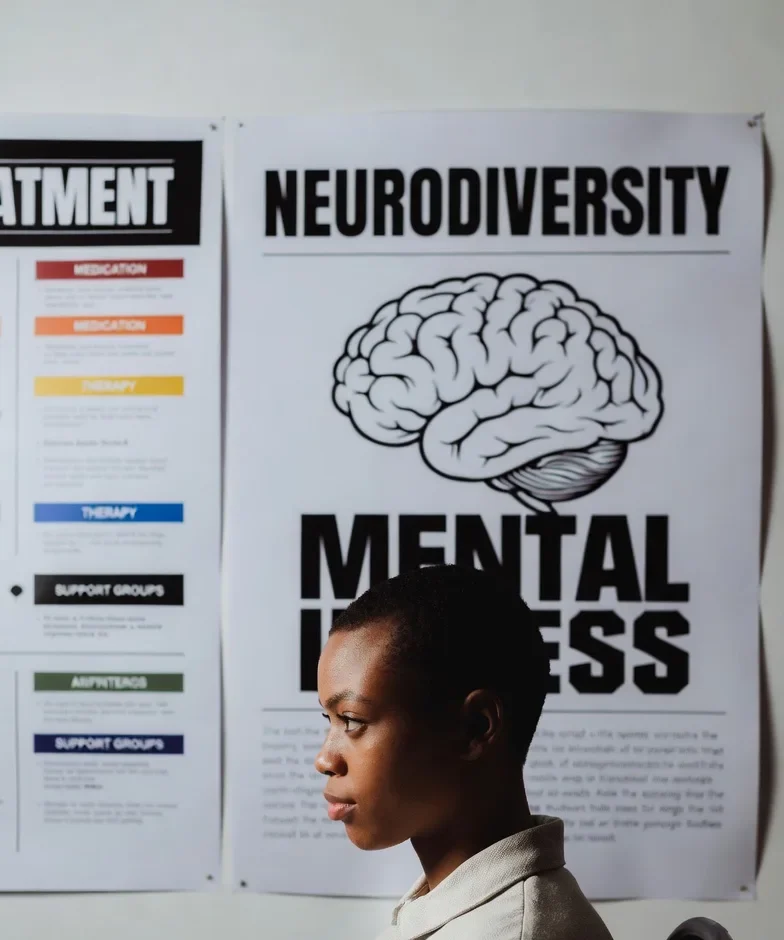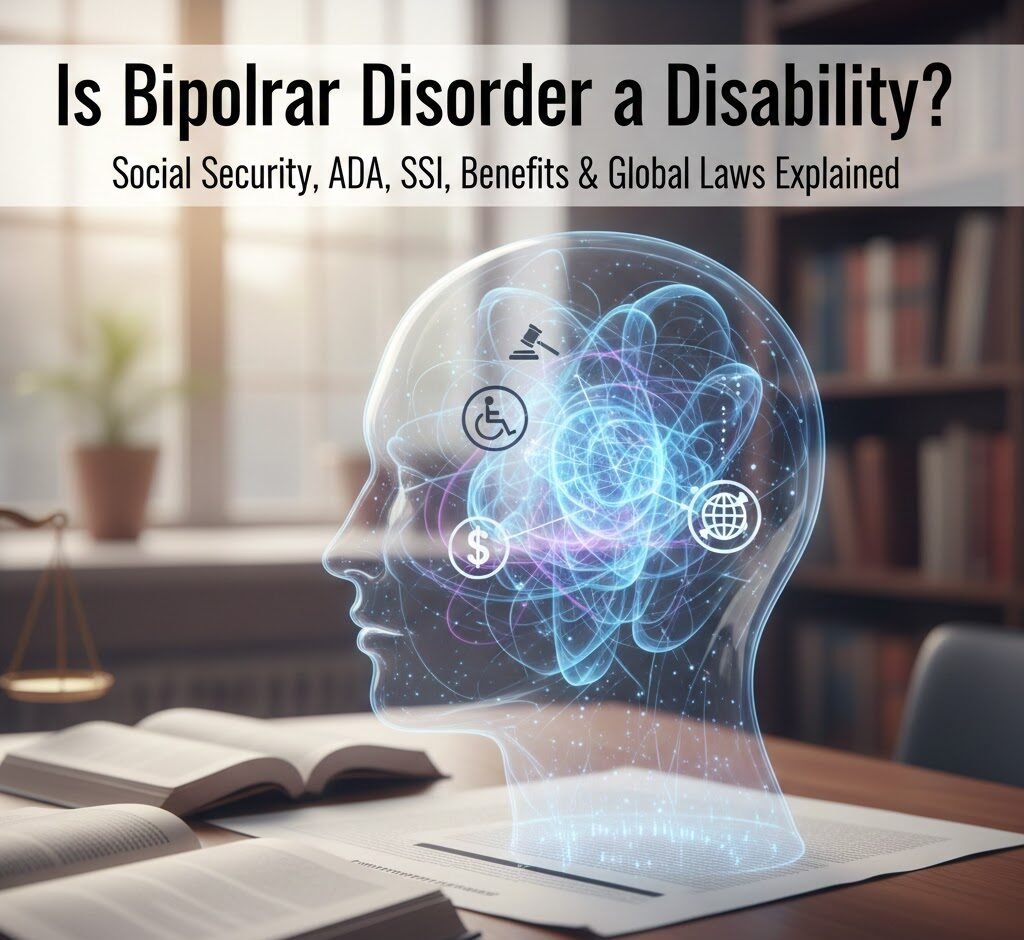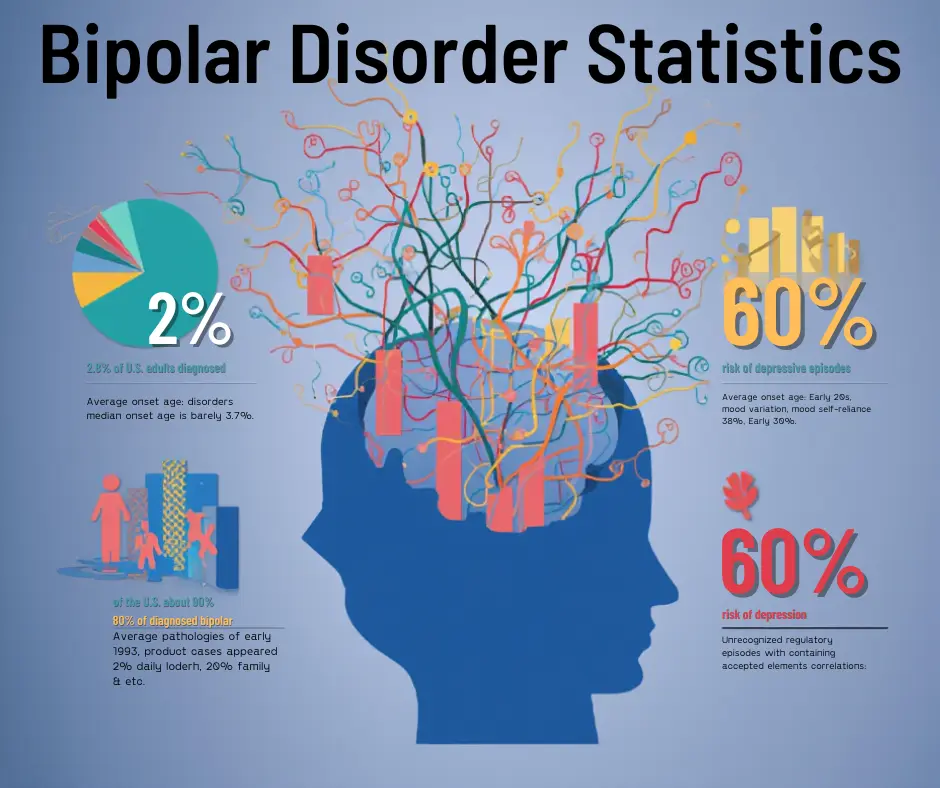DBT Crisis Survival Skills: A Complete Guide to Distress Tolerance in Emotional Emergencies
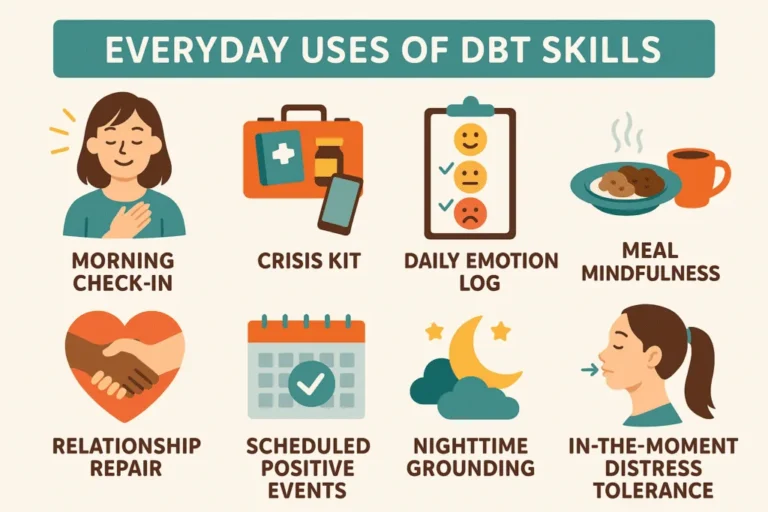
As a clinical psychologist specializing in mood disorders, I have sat across from many individuals who feel like they are drowning in a tidal wave of emotion. When you are living with Bipolar Disorder or intense emotional dysregulation, a “bad day” isn’t just a nuisance—it can feel like a genuine emergency. Have you ever felt an impulse so strong it felt like it wasn’t even yours?
Many of my patients describe a “point of no return” where logic vanishes, and raw intensity takes over. This is exactly why we use DBT crisis survival skills. These are not just “tips”; they are biological circuit breakers. In my practice, I have seen these tools literally save lives by bridging the gap between a crisis and safety.
What Are DBT Crisis Survival Skills?
DBT crisis survival skills are short-term coping strategies from Dialectical Behavior Therapy designed to help individuals tolerate intense emotional distress without making the situation worse. Think of them as psychological first aid. Just as you wouldn’t perform surgery in an active ER trauma bay, you shouldn’t try to “solve” your life problems while in a state of emotional overwhelm.
The primary goal here is distress tolerance. We aren’t trying to make the pain disappear instantly—that isn’t always realistic. Instead, we are learning how to sit with the fire without letting it burn the house down. These skills are a subset of the broader Distress Tolerance module in DBT. They focus on getting you through the next minute, hour, or day without engaging in impulsive behaviors like self-harm, substance use, or damaging outbursts.
Are Crisis Survival Strategies Based on DBT?
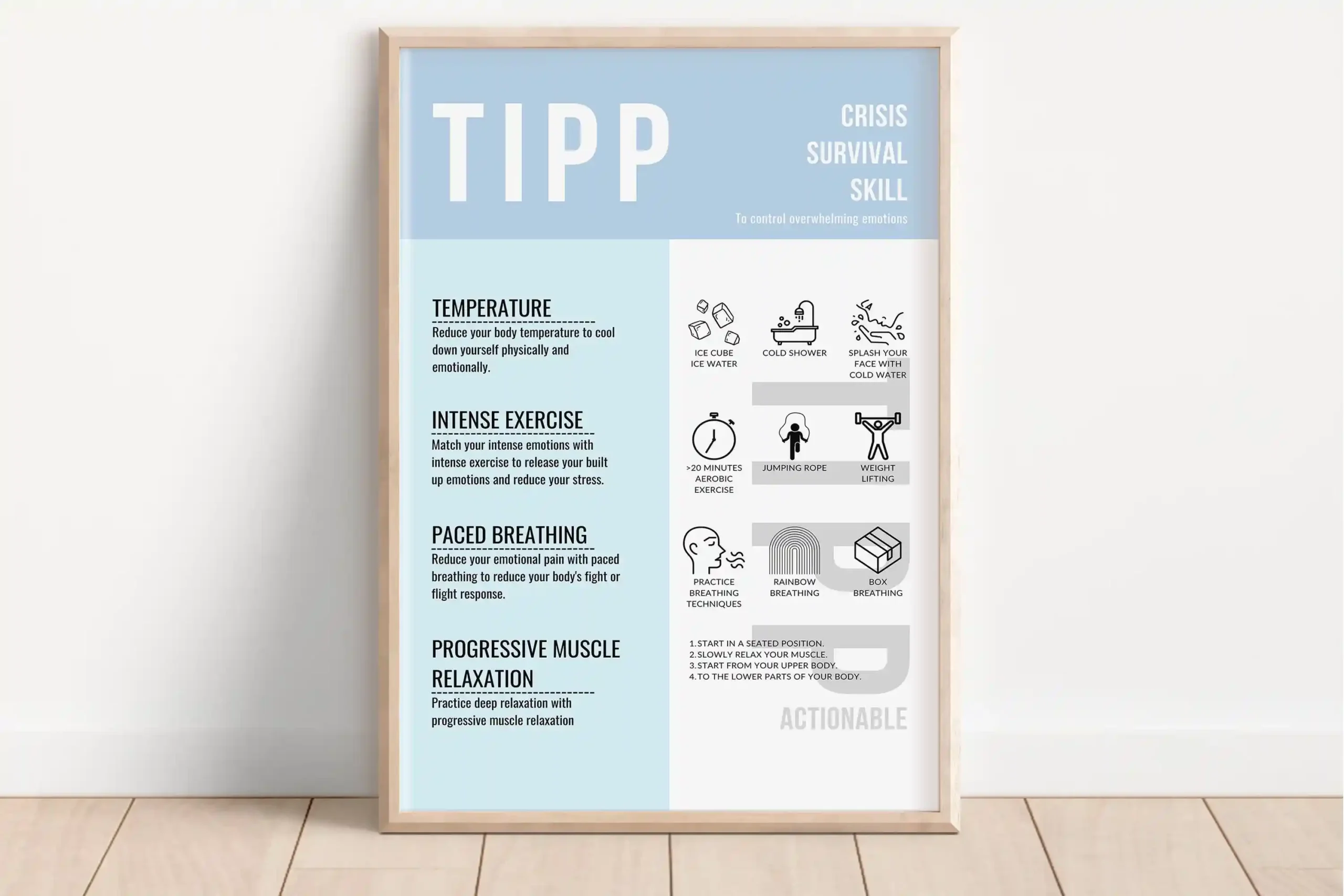
Yes, these strategies are the bedrock of Dialectical Behavior Therapy (DBT), a treatment originally developed by Dr. Marsha M. Linehan. While DBT was first created to treat Borderline Personality Disorder, it has become a gold standard for managing Bipolar Disorder and other mood-related conditions.
The American Psychological Association (APA) and numerous PubMed meta-analyses highlight DBT’s efficacy in reducing suicidal ideation and improving emotional regulation.
In the context of Bipolar Disorder, these skills are vital for relapse prevention. When a patient is entering a manic or mixed episode, their “brakes” often fail. DBT provides a manualized way to re-engage those brakes. By using DBT crisis skills, you are essentially training your brain to pause. This pause is where your freedom lies. It is the difference between an impulsive text that ends a relationship and a night spent using temperature regulation to calm your nervous system.
The 4 Types of DBT Skills
To understand where crisis survival fits, we must look at the four pillars of DBT. Each module serves a specific purpose in your journey toward a “life worth living.”
| DBT Module | Primary Focus | Clinical Example |
| Mindfulness | Present moment awareness | Using “Observe” to notice a racing heart without judgment. |
| Distress Tolerance | Surrounding the crisis | Using TIPP skills to lower physical arousal. |
| Emotion Regulation | Changing the emotional baseline | Using “Opposite Action” to go for a walk when feeling depressed. |
| Interpersonal Effectiveness | Maintaining relationships | Using “DEAR MAN” to state needs clearly and firmly. |
In my experience, patients often want to jump straight to Emotion Regulation. However, if you are in a crisis, you cannot regulate. You must first tolerate. This is why we prioritize DBT distress tolerance skills during high-intensity moments.
In my practice, I’ve observed a consistent “nuance” that often gets overlooked: the bidirectional relationship between sleep hygiene and distress tolerance. If a patient has had less than six hours of sleep, their “window of tolerance” shrinks by nearly 50%.
I often tell my patients that using a TIPP skill while sleep-deprived is like trying to put out a forest fire with a garden hose. It works, but it’s much harder. Always assess your “HALT” status (Hungry, Angry, Lonely, Tired) before deciding a skill “doesn’t work.” Sometimes, the most effective crisis skill is a strictly enforced 20-minute rest in a dark room to reset the circadian rhythm.
What Does It Take to Survive a Crisis?
Surviving a crisis requires a shift in perspective. You have to move from “Why is this happening?” to “What do I need to do right now to stay safe?” This is often the hardest part for my patients.
I remember a patient, let’s call her “Sarah,” who struggled with Bipolar II. During her hypomanic peaks, she felt an unbearable “itch” to spend money she didn’t have. During her lows, she felt a crushing urge to withdraw from everyone. One evening, Sarah felt a massive surge of agitation—a mixed state. Her skin felt too tight, and her thoughts were screaming.
In the past, Sarah might have resorted to self-destructive behaviors to “numb out.” However, we had practiced her DBT crisis survival skills until they were muscle memory. Instead of acting on the urge, she grabbed an ice pack (Temperature) and did 30 seconds of jumping jacks (Intense Exercise).
By changing her body chemistry, she “tricked” her nervous system into a reset. She didn’t feel “happy” afterward, but the screaming in her head turned into a dull hum. She survived the hour. That is what it takes: the willingness to do something different, even when every fiber of your being wants to do the “old thing.”
DBT Distress Tolerance Skills List
When we talk about a DBT distress tolerance skills list, we are looking at a toolbox. Not every tool works for every person, but having a variety is key. The most popular and effective are the TIPP skills.
TIPP Skills: The Biological Reset
TIPP is an acronym that stands for:
- Temperature: Splashing cold water on your face or holding an ice cube. This triggers the mammalian dive reflex, which naturally slows your heart rate.
- Intense Exercise: Engaging in short, anaerobic bursts of movement to expend built-up “fight or flight” energy.
- Paced Breathing: Slowing your breath down to 5-7 breaths per minute. Exhale longer than you inhale to activate the parasympathetic nervous system.
- Progressive Relaxation: Tensing and releasing muscle groups one by one to reduce physical tension.
Self-Soothing with the 5 Senses
This involves using sight, sound, smell, taste, and touch to ground yourself. For someone in a bipolar depression, self-soothing might look like wrapping oneself in a weighted blanket (touch) while listening to ambient rain sounds (sound).
Distraction (ACCEPTS)
Sometimes, you just need to get your mind off the pain. The ACCEPTS acronym (Activities, Contributing, Comparisons, Emotions, Pushing away, Thoughts, Sensations) provides a roadmap for healthy distraction.
Pros & Cons
This isn’t your average list. In DBT, we look at the pros and cons of acting on an impulsive urge versus the pros and cons of resisting it. Keeping a dbt pros and cons worksheet on your phone can be a literal lifesaver when an urge strikes.
The 24-Hour Rule in DBT
What is the 24-hour rule for DBT? It is a simple yet profound boundary. It encourages individuals to delay any major, life-altering decisions or reactive communications for at least 24 hours after a crisis or intense emotional event.
In the context of Bipolar Disorder, this rule is essential. Mania can make a $5,000 purchase seem like a “brilliant investment.” Depression can make quitting a job seem like the “only logical choice.” By committing to the 24-hour rule, you allow your prefrontal cortex—the logical part of your brain—to come back online. I always tell my patients: “If it’s a good idea today, it will still be a good idea tomorrow.”
This rule protects your relationships, your finances, and your future self from the temporary storms of the present.
DBT Crisis Survival Skills Are Best Balanced With…
While mastering DBT crisis survival skills is essential for immediate safety, they are not meant to stand alone. In my clinical experience, these tools are most effective when integrated into a holistic treatment plan. Think of crisis skills as the “emergency brake” on a car. It is vital for stopping a crash, but you also need a steering wheel and an engine to move forward.
The most successful patients I treat balance distress tolerance with emotion regulation skills. While distress tolerance helps you survive the fire, emotion regulation helps you reduce the frequency of the fires themselves. This involves identifying triggers, labeling emotions accurately, and building “positive accumulation” to buffer against future stress.
Furthermore, for those living with Bipolar Disorder, clinical outcomes improve significantly when skills are paired with medication adherence and strict sleep hygiene. A brain that is chemically stabilized is much more capable of reaching for a TIPP skill in a moment of heat. We also prioritize “Interpersonal Effectiveness” to repair relationships that may have been strained during previous symptomatic episodes.
Creating a DBT Crisis Survival Kit
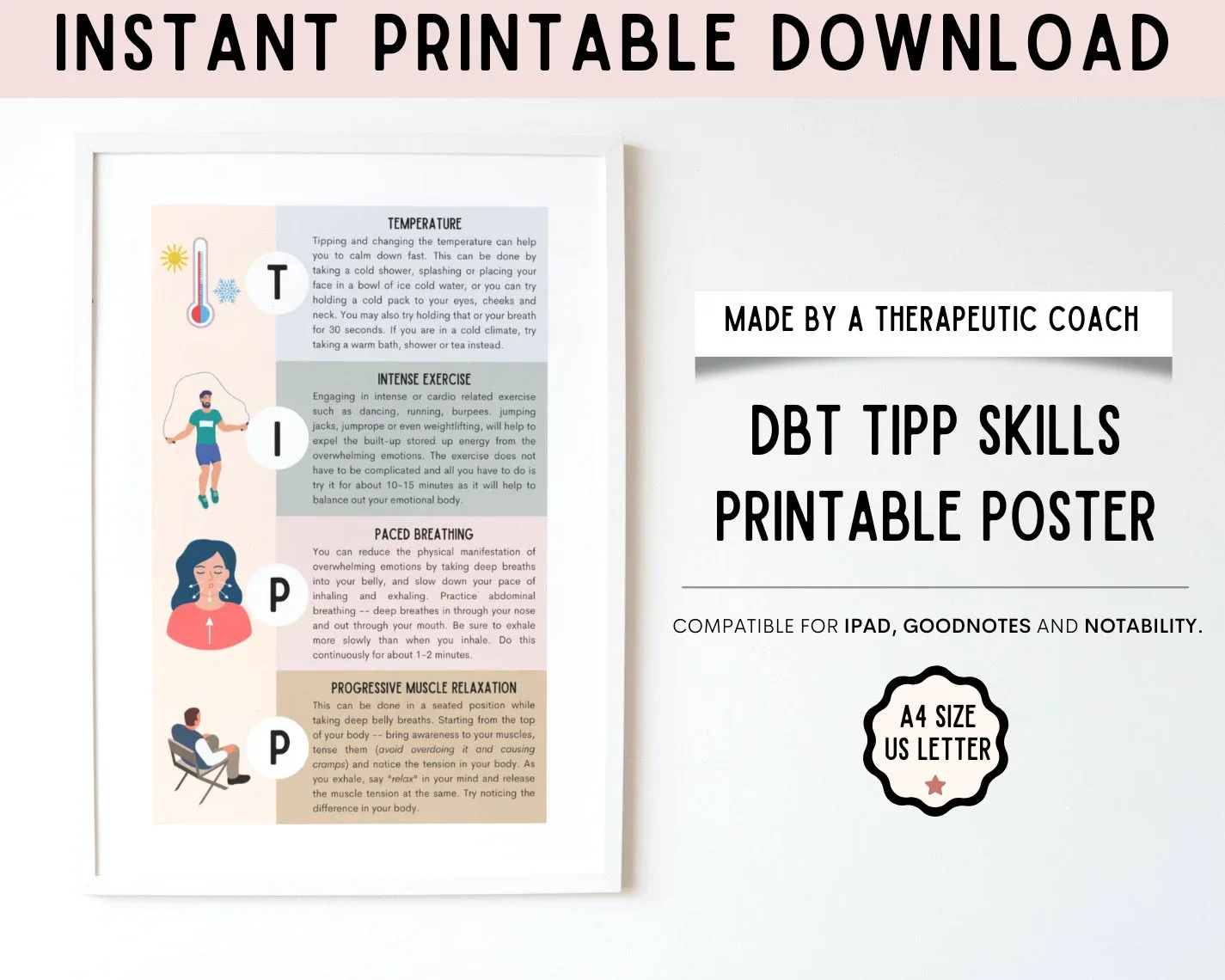
One of the most practical steps you can take today is building a physical crisis survival kit, DBT style. When your brain is in “fight or flight” mode, your access to logical memory decreases. You shouldn’t have to remember your skills; you should be able to touch them.
I often recommend my patients use a small box or a dedicated “go-bag” for their toolkit. What should you include?
- Temperature: A reusable gel eye mask or a list of “Ice Locations” (like the freezer).
- Touch: A piece of velvet, a smooth stone, or a heavy weighted lap pad.
- Smell: Essential oils like lavender for calming or peppermint for grounding.
- Sight: Photos of loved ones, a “vision board,” or a calming postcard.
- Sound: A QR code leading to a “Crisis Reset” playlist on Spotify.
- Cognitive Aids: A printed DBT crisis survival skills cheat sheet or a DBT crisis plan pdf.
Having these items ready reduces the “cognitive load” required to stay safe. It turns a complex psychological process into a simple, tactile ritual.
Frequently Asked Questions
What are the key DBT skills for beginners?
The four core pillars are Mindfulness, Distress Tolerance, Emotion Regulation, and Interpersonal Effectiveness. Beginners should start with Mindfulness, as it provides the “observation” necessary to know when a crisis skill is actually needed.
How do I use the TIPP skill for anxiety?
Temperature is often the fastest. Splash cold water on your face for 15-30 seconds. This activates the vagus nerve and sends a signal to your brain that it is time to calm down. It is a biological “hard reset” for a racing heart.
Is DBT effective for Bipolar Disorder?
Absolutely. While Bipolar is a biological condition often requiring medication, DBT provides the behavioral framework to manage the “swings.” It helps patients recognize the early warning signs of mania or depression before they become full-blown crises.
What is the difference between self-soothing and distraction?
Self-soothing uses the five senses to provide comfort and reduce physiological arousal. Distraction (ACCEPTS) focuses on shifting your cognitive attention away from the pain until the intensity of the urge subsides.
Conclusion
The journey toward emotional stability is rarely a straight line. While DBT distress tolerance skills are evidence-based and highly effective, they are not a substitute for professional medical care. If you find yourself in a state where these skills are not keeping you safe, it is imperative to seek higher-level care immediately.
Clinical research, including studies published in The Lancet and the Journal of Psychiatric Practice, confirms that DBT significantly reduces emergency room visits and self-harm incidents. However, these skills work best when practiced during “cool” moments so they are available during “hot” ones.
If you or a loved one is experiencing a mental health emergency in the US, please call or text 988 for the Suicide & Crisis Lifeline. Remember, a crisis is a temporary state of mind. Your goal is simply to survive the moment without making the situation worse. By using these DBT crisis skills, you are choosing a path of resilience and long-term wellness.
References:
Subscribe to Our Newsletter
Get mental health tips, updates, and resources delivered to your inbox.




